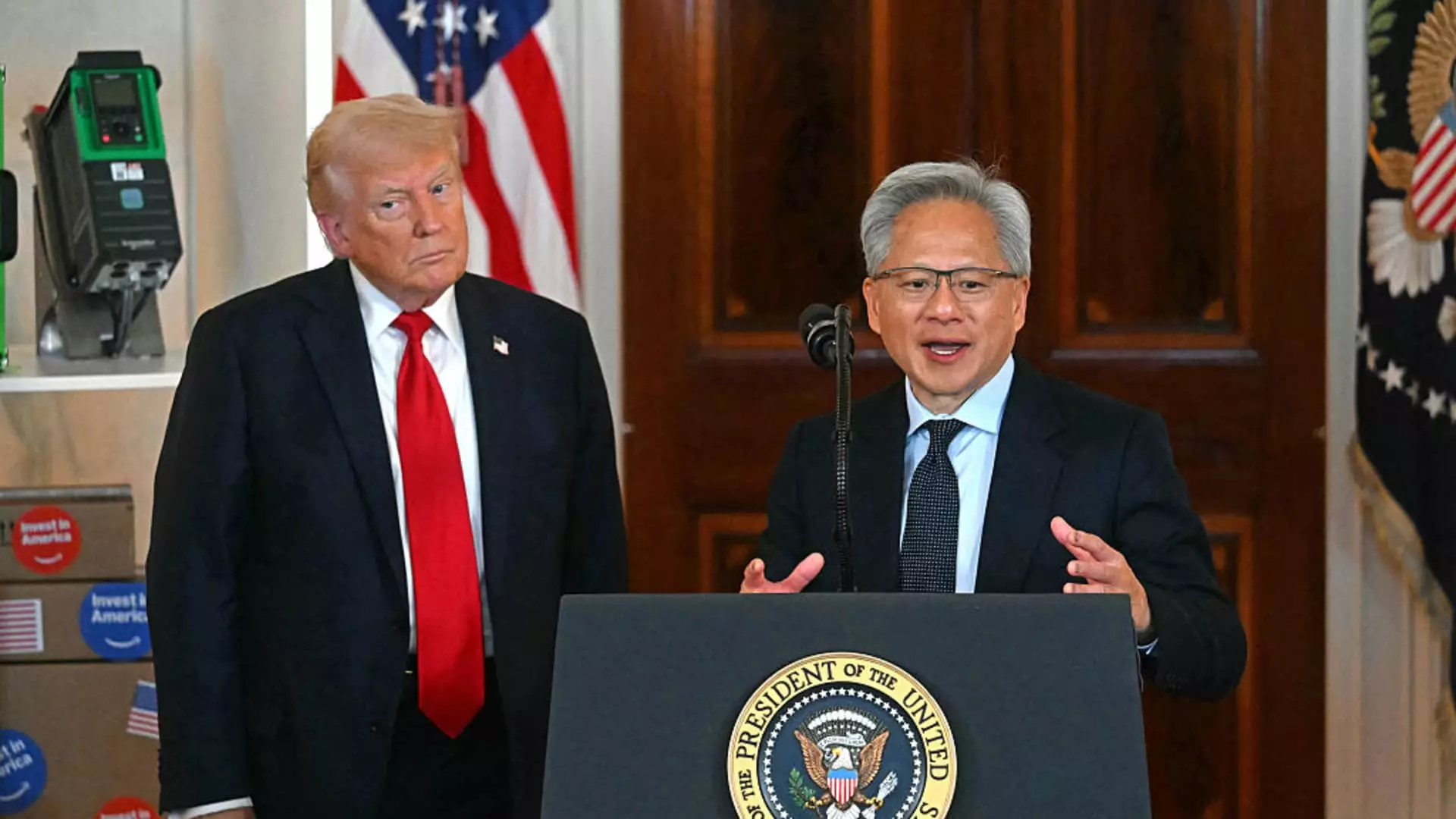In a world increasingly divided by geopolitical tensions, the notion that economic cooperation can be a neutral ground is naive at best and dangerously reckless at worst. Recent decisions by the Trump administration to relax export restrictions on advanced semiconductor chips, especially those used in artificial intelligence, reveal a troubling willingness to prioritize short-term economic gains over long-term national security. These moves are not isolated; they signify a dangerous shift towards viewing international trade as an end in itself, neglecting the strategic importance of technological supremacy.
Economic Interests Versus National Security
The decision to permit companies like Nvidia and AMD to sell cutting-edge AI chips to China in exchange for a mere 15% revenue share exemplifies a shortsighted approach, driven more by lobbying pressure and economic appearances than genuine strategic foresight. U.S. policymakers should recognize that technological dominance—particularly in AI and semiconductors—is directly linked to military, diplomatic, and intelligence advantages. Giving away such technology, ostensibly for monetary profits, undermines America’s leadership position and compromises its ability to defend itself.
The logic of trading technology for a revenue cut is fundamentally flawed. It assumes that the global market is a level playing field, ignoring the realities of state-sponsored espionage, industrial espionage, and the potential military implications of these chips falling into China’s hands. When the core of national security involves safeguarding critical technology, betting on commercial interests over strategic integrity is a perilous gamble that can backfire disastrously.
The Illusion of Economic Benefits and the Real Cost
Proponents argue that these sales help American companies gain a competitive edge globally and foster innovation. Nvidia’s claim that restricting the sales was costly and that selling AI chips abroad boosts American leadership is an oversimplification. It fails to address the broader consequences—a stronger China armed with advanced AI technology could reshape the global balance, potentially destabilizing democracies and enabling aggressive military postures.
Allowing China to access these chips not only risks military escalation but also cedes the innovation advantage that the U.S. has cultivated over decades. The argument that these sales are purely commercial ignores the reality that technology always has a strategic dimension. The supposed economic gains are far outweighed by the long-term costs of eroding technological superiority—a vital component of national power.
Political and Moral Failures of Appeasement
The response from the current administration reveals a troubling propensity for appeasement. Disregarding the concerns of seasoned legislators who understand the stakes reflects a political short-sightedness. Instead of asserting leadership and defending strategic interests, officials dismiss critics as irrelevant, prioritizing short-term economic benefits over the country’s security.
This trend of capitulation is reminiscent of past mistakes where nations sacrificed their sovereignty and innovation base—Germany before WWII, for example—under the guise of economic integration. For a modern democracy, such naivety is unacceptable. Technological sovereignty should be a non-negotiable national security priority, not a bargaining chip for corporate profits.
Implications for the Future
Allowing China to access American AI technology under the guise of trade and economic growth doesn’t just threaten current security; it jeopardizes future leadership in global technology. As China continues to invest heavily in AI and semiconductor manufacturing, the U.S. must recognize that fostering dependency on hostile nations will undermine its strategic position for generations.
The bipartisan alarm expressed by Senators indicates that this issue transcends partisan politics—it strikes at the core of America’s ability to maintain a technological edge. Rising global competition means that concessions today will have repercussions tomorrow, and the loss of technological primacy can be irreversible.
A Call for Stronger Stances and Sovereign Decision-Making
The U.S. must recalibrate its approach to technological exports, recognizing that security and innovation are intertwined. Sensible restrictions, coupled with investments in domestic semiconductor capabilities, are essential to preserve national security. Allowing corporate profits to overshadow strategic sovereignty is akin to building on a foundation of sand.
Economic policies shouldn’t be dictated by short-term gains that threaten long-term independence. Instead, policymakers should prioritize safeguarding critical technologies and ensuring that America remains the leader in AI and semiconductor innovation. Failure to do so risks ceding the future to adversaries and turning America’s technological advantage into a vulnerability.

